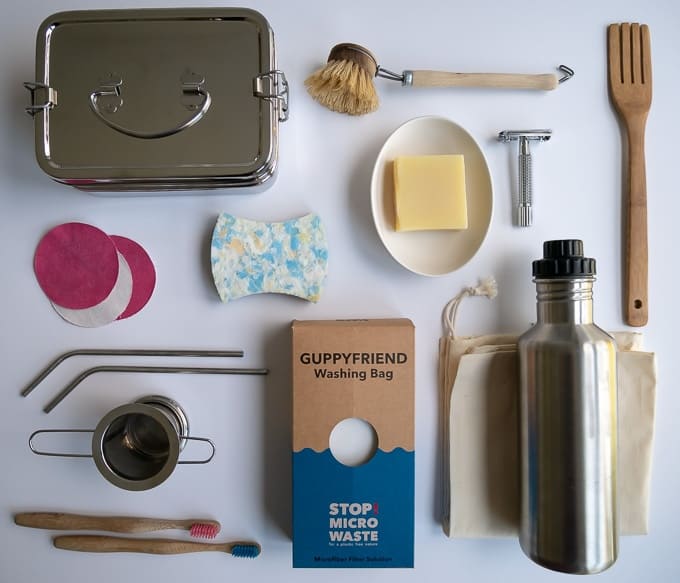
Ready to make a real change? In this post, I'm diving into the nitty-gritty of sustainable living with one mission: Reduce the use of plastic products! Learn about 40+ super easy and practical plastic alternatives.
Small changes, big impact – let's do this! 💚🌎
Note: Some of the links below are affiliate links. At no additional cost to you, I may earn a small commission if you purchase through those links. You can read my full affiliate disclosure here.
In This Post:
Last week, I took a walk along a nearby field, and something wonderful happened: I witnessed a new type of sport (that I had deemed mythical).
PLOGGING.
Do you know about plogging? (Have you tried it already?!?)
Wikipedia describes it as a combination of jogging with picking up litter.
As I strolled, I noticed a guy jogging with a huge black bag. He would stop and bend down ever so often.
When I got near him, I realized he was picking up trash—yes, he was plogging!
Just as I passed him, he picked up a candy bar wrapper.
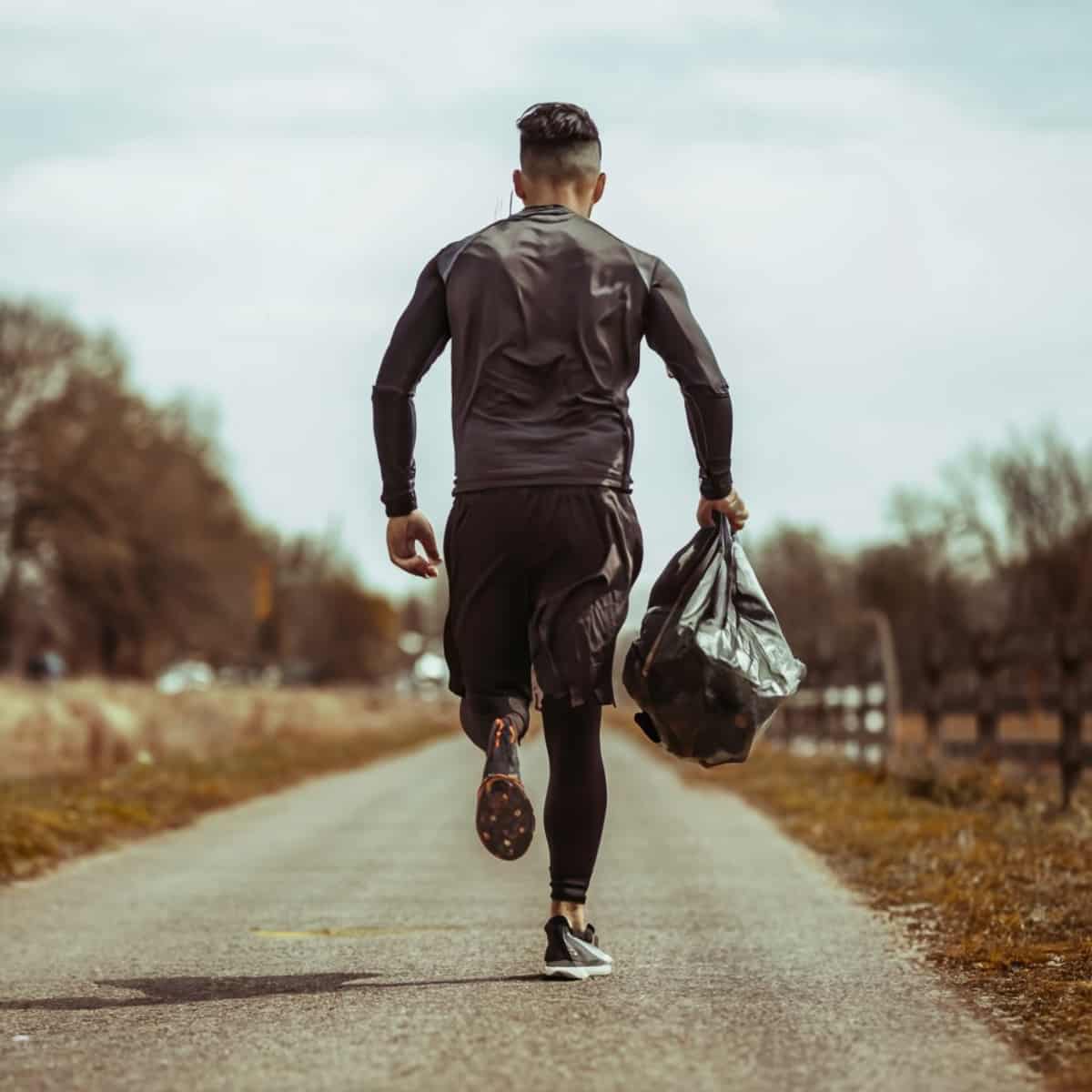
My heart filled with gratitude; he was investing his spare time to clean the environment. I almost stopped to thank him (but he didn’t notice me, and it’s not common practice to talk to strangers in Germany).
At the same time, I was shocked that his bag was pretty much filled with littered waste. I can’t imagine that he’d been plogging for several hours—I suppose that was the amount of waste he had found in less than an hour.
I Thought I Had it All Figured Out …
For years, I’ve been using a reusable water bottle.
Single-use plastic straws are a thing of the past; I swapped them for stainless steel straws.
I use a bamboo toothbrush and a reusable tea strainer.
I even buy unpackaged goods at the bulk store as often as I can. (So proud of myself!)
So! I thought I had many things figured out.
I felt like an eco-warrior already.
Luckily, there are always people to challenge our conceptions and show us how much more is possible. One such person is Sarah Gould.
She is a zero-waste expert who challenged me to take an even closer look at my plastic use.
I learned many things, especially how to reduce my plastic use in the office and on the go (hello, to-go bamboo travel utensils).
She was so kind as to share her experience and plastic alternatives with us today.
But first ...
Why You Should Reduce the Use of Plastic
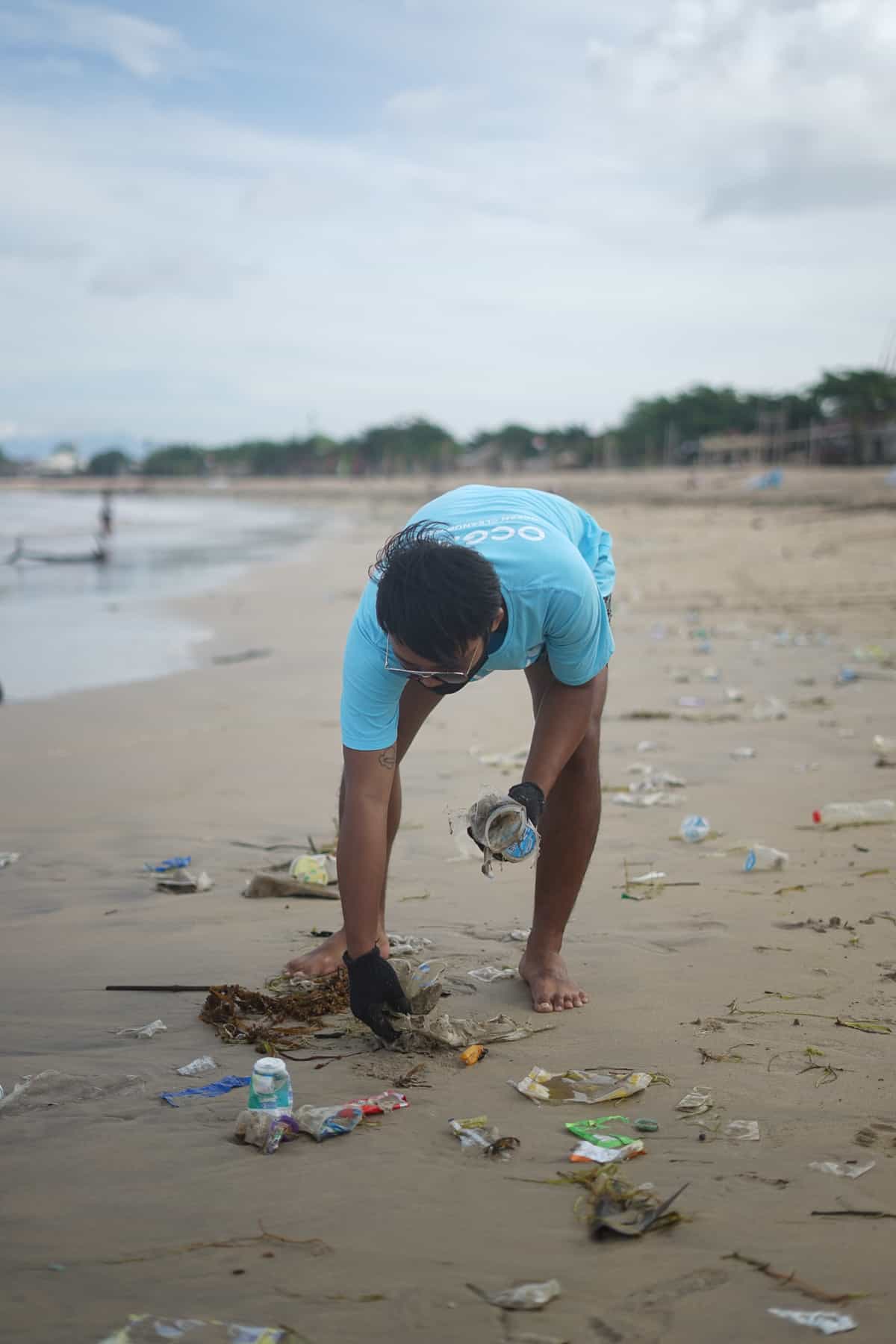
The largest market for plastic today is packaging. It's crazy that an imperishable material is being manufactured and used on a large scale as a disposable commodity.
Over 40% of the plastic produced today is used only once and then discarded (National Geographic).
Plastic water bottles, produce packaging, candy wrappers, straws, single-use coffee cups, plastic bags - they all end up in the bin, or - more likely - on the street, in the park, in the woods, in the river, and finally in the ocean.
Plastic pollution is a serious problem today, especially plastic waste in the ocean – one that is increasing each year.
If you live near a river or the ocean and take a stroll on the beach, you've probably noticed plastic items. It's not only what people walking there discard; it's also plastic waste that landed in the ocean and got washed up on the shore.
Can I or you stop plastic pollution? No. Not individually.
But everyone can contribute to reducing the demand for plastic.
How is that supposed to work?
By starting with our own plastic consumption.
Take a closer look at the products you use. Then swap them for plastic alternatives, step by step: Banish one piece of plastic at a time from your everyday life and replace it with more sustainable products and materials.
It may be challenging at the beginning, but it gets easier along the way. AND: It is worth it.
Zero-waste expert Sarah Gould is here to help us. She shares more than 40 simple tips on how to reduce plastic use in your everyday life.
This is the perfect starting point for those who are just embarking on the ditch-plastics journey. And there are even tips for the plastic-free pros.
______________
Sarah’s Journey to a Low-Impact Life
By Sarah Gould
My journey to living a low-impact lifestyle started when I was at the grocery store picking up some produce and thinking to myself “There must be a better alternative to these plastic produce bags”. This thought led to my deep dive into reducing my plastic use and other ways of reducing waste in my life.
I have a lot of tips on how to reduce the amount of plastic in our lives, it can be a bit overwhelming, so remember to take this one step at a time. I've heard it can take up to a year to transition into a low-impact lifestyle. Some tips may not be feasible for everyone – just do what you can, every bit helps. If you have more tips, please let me know in the comments.
This blog post was inspired by Shelbizleee on YouTube, the low impact movement, Zero Waste Home (blog discontinued), and The Story of Stuff.
Plastic Alternatives IN YOUR HOME
- When you need to replace an item in your home, anything from clothing to furniture, try to purchase the item second-hand from a thrift store or online. You'll save some money and avoid the extra packaging these items can come with.
- Switch to a safety razor for your shaving needs.
- Use stasher bags for freezing your food, packing snacks, and much more.
- Use (vegan) reusable beeswax food wraps.
- Use reusable baking sheet liners instead of parchment paper or aluminum.
- If you have the spare time, make your own nut milk, here's a video that includes hot to do that and other kitchen tips.
- Use a bar soap for shampoo, conditioner, and body. Bar body soap is pretty easy to find without plastic packaging at most health food stores. Lush sells a variety of shampoo, conditioner bars, and other plastic-free beauty products. You can refill your bottles there if you have a bulk store with liquid soaps.
- Instead of buying new books, try renting books from your local library, using an e-reader, or purchasing used books.
- Make your own cleaning products or refill bottles at your local bulk store. Zero Waste Cleaning Tips Video
- Switch from a sponge or plastic dish brush to a bamboo brush.
- If feasible, switch to toilet paper that is not wrapped in plastic. Who Gives a Crap is a great example. Before purchasing, make sure this works in your household. Homes running on city water are generally ok, but this toilet paper may not work for septic systems and other sensitive systems.
- There are many tutorials for making your own mouthwash, toothpaste, etc. I'd recommend checking with your doctor before making a switch like this.
- You can make your own laundry soap or use eco nuts instead of detergents in plastic packaging.
- Use rechargeable batteries instead of disposable ones. I have a set for my keyboard, I've had them for a little over a year and they're great!
- If you're in the market for a new phone case, Pela sells compostable ones that last a long time.
- Make your own air fresheners.
- Make the switch to cloth napkins and tissues.
- If you drink coffee and have Keurig, switch to a reusable K-cup. If you would like to invest in a coffee grinder, you can buy coffee beans in bulk and grind them yourself. Store in a jar with a tight lid to keep your coffee fresh. If that’s not a feasible option, buy ground coffee in a bag. So far, I’ve only seen coffee beans available in bulk sections; I have not seen ground coffee available in bulk.
- Use cloth towels instead of paper for everyday cleaning. You can cut up old t-shirts or towels to reuse them as cleaning cloths. Or you can buy reusable paper cloth towels.
- Make your own reusable make-up pads. Video Tutorial
- Replace disposable pads or tampons with either a diva cup, reusable pads, or period underwear. Take your time to find a solution that works best for you; most will use a combination of these items.
Plastic Alternatives When GROCERY SHOPPING
- If feasible, shop at bulk stores or bulk sections. Bring jars and cloth bags instead of the provided plastic bags.
- If bulk stores are not an option you can buy non-perishable items in bulk, like spices, on Amazon. This will not eliminate packaging, but this option helps reduce your packaging consumption and will save you some money.
- Use reusable grocery bags to carry your items, reusable cloth produce bags for produce and bread (if you have a local bakery near you that will allow this), and jars if necessary. You can reuse pasta jars or find jars at a thrift store.
- Avoid pre-cut produce when possible.
- Eat less meat - it’ll help avoid the packaging, and choosing more plant-based meals will help the environment in many other aspects.
- If you like beer or wine, try to find a local brewery or winery that you love and see if they offer the option to refill bottles of your favorite drinks.
Plastic Alternatives ON THE GO
- Bring a straw or drink your beverage without one.
- Bring a reusable water bottle to stay hydrated and refill as needed.
- Bring your own coffee thermos for hot beverages when you visit a coffee shop.
- Use e-tickets whenever possible (Apple Wallet for plane tickets is one good example)
- If you’re going out to eat, bring your own to-go container in case you have leftovers.
- Try to avoid restaurants that only serve in paper, plastic and/r styrofoam packaging. Restaurants that serve compostable packaging are good, but avoiding any kind of single-use item is better.
- Avoid drinks that are in plastic bottles.
- If you’re at a conference or a fair, avoid free items that you would not use. These tend to be made of plastic.
- Use a bamboo toothbrush instead of a plastic one.
- If you own a car, when it comes time to change your air filters, switch to a reusable option and make sure to clean them once a year.
- If you normally buy cars, keep your car as long as possible. The longer you keep a car, the less of a demand there will be for car companies to make more cars. Creating cars requires a lot of materials, including plastic.
- Ride a bike or walk when feasible.
- If you're in the market to buy a car, try to find a used one instead of buying new. Creating new cars wastes a lot of energy; it's best not to create a demand for new cars and use what we have for as long as possible. Finding a fuel-efficient one is a bonus. When I had to buy a new car, I purchased a gently used hybrid.
Plastic Alternatives IN THE OFFICE
- Bring your own lunches, silverware, napkins, and dishcloth. I bought my silverware set and a set of cloth napkins on Amazon. The dishcloth is only necessary if you wash your utensils in the office. Another option for silverware is to bring a spare fork or spoon in with your lunch. I personally take some time on Sunday to cook my lunches for the week; that way, I don't have to worry about it during the week.
- Bring your own cups for water and hot beverages. Personally, I use a spare mug for tea and a thermos for water. This will cut down on the use of the plastic and paper cups that are provided in the office.
- If you enjoy tea - bring your own loose-leaf tea with a reusable steeper. If you cannot find loose-leaf tea in a bulk section or store near you, you can purchase loose-leaf tea online or sometimes in a box in stores. This is still a much better option than individual tea bags.
- If you go through pens on a regular basis, try to purchase ones made of recycled materials. Onyx and Green is a great example.
______________
Thank you, Sarah, for compiling this impressive list and for sharing your recommendations with us.
If you need more inspiration and tips for going plastic-free, check out Greenpeace’s 9 Ways to reduce your plastic use.
Thoughts? Ideas? Any favorite plastic alternatives? Please share in the comments.
Wishing you planty of plastic-free delights,
Ramona
Psst, you will enjoy 10 Facts That Speak Against Plastic and 2 GENIUS Hacks to Save Water.
______________


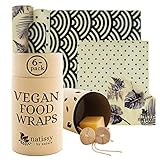










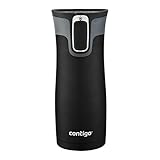




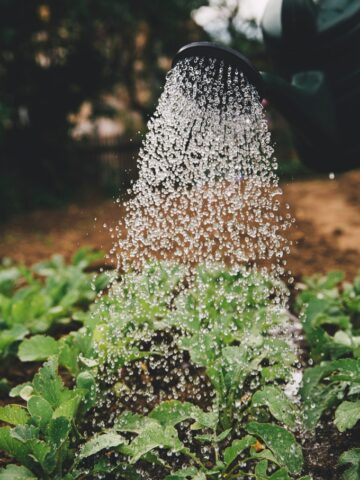
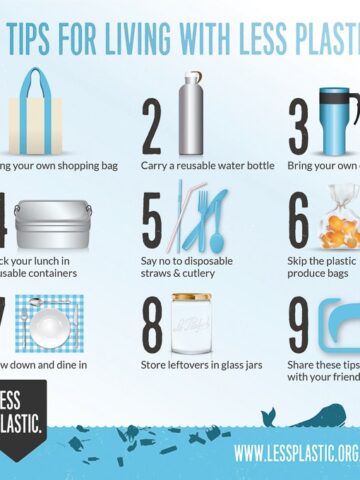
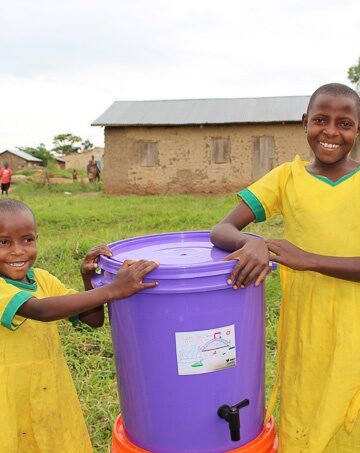
Write a Comment